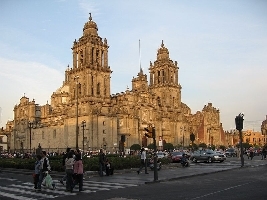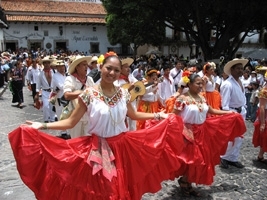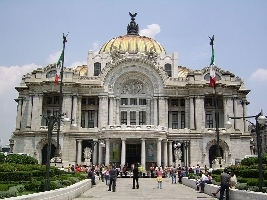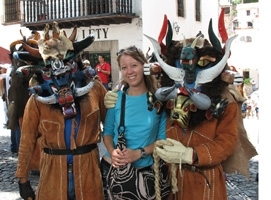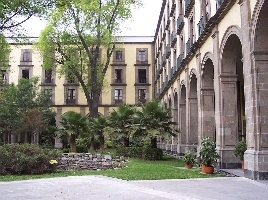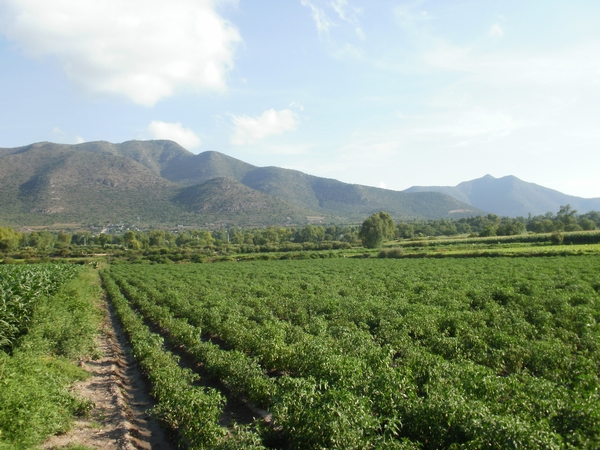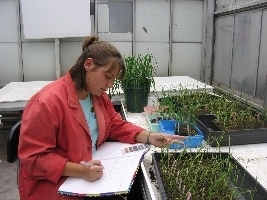
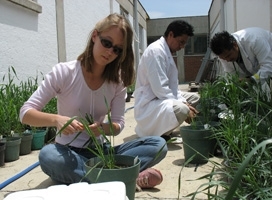
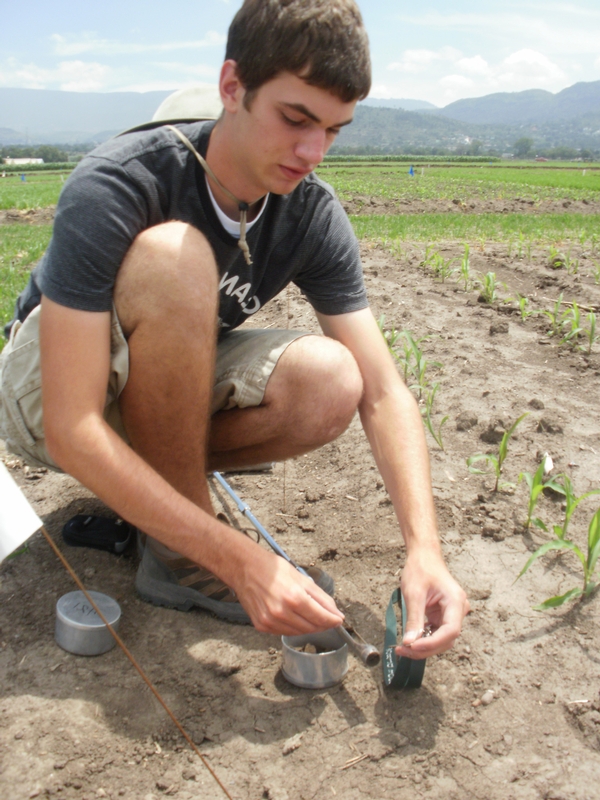
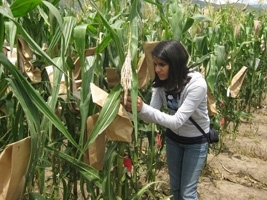
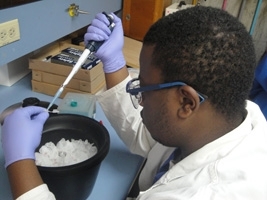
International Maize and Wheat Improvement Center
The International Maize and Wheat Improvement Center (CIMMYT) in El Batan, Mexico has hosted seventeen high school interns since 1998.
Established in 1943, CIMMYT is a non-profit research and training center that works to sustainably increase the productivity of maize and wheat systems to ensure global food security and reduce poverty by bringing together public research and extension organizations, private companies, advanced research institutes, NGOs, and farmer associations in countries worldwide.
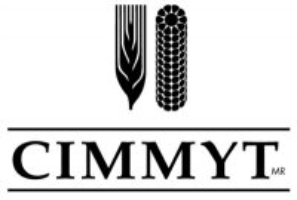 The CIMMYT carries out research and development in plant breeding; genetic resources; sustainable production; and socioeconomics.
The CIMMYT carries out research and development in plant breeding; genetic resources; sustainable production; and socioeconomics.
Headquartered in El Batan, outside of Mexico City, CIMMYT has research centers in thirteen countries.
Interns at CIMMYT work alongside renowned international researchers and experts - like Dr. Petr Kosina, Dr. Allessandro Pelligrineschi, and Dr. Roberto LaRovere - in the fields of Mezquital Valley, the village of Agua Fria, and in CIMMYT's research labs in El Batan. Some of them have had the opportunity to interact with the 2000 World Food Prize Laureate Dr. Evangelina Villegas and 1970 Nobel Peace Prize Winner and World Food Prize Founder Dr. Norman E. Borlaug, before his passing in 2009.The students have the opportunity to travel around Mexico with their host families and colleagues to see the Historic Center, the "floating gardens" of Xochimilico, Castle of Chapultepec, Fine Arts Palace, shrines for Our Lady Guadalupa, the Cathedral Metropolitana, and the National Palace.
|
|
Images licensed by CC-BY-SA and GFDL (courtesy: )
Mexico Specific Questions
Suggested Travel Link: https://travel.state.gov/content/travel/en/international-travel/International-Travel-Country-Information-Pages/Mexico.html
Visa required: Tourist Visa Required if visiting for more than 180 days.
Passport: Required
Travelers Heath & Vaccinations: Visit the CDC website at https://wwwnc.cdc.gov/travel/destinations/list
Embassies & Consulates Contact:
-
U.S. Embassy in Mexico City - Paseo de la reforma 305 Colonia Cuachtemoc C.P. 06500, Ciudad de Mexico
Telephone: 011-52-55-5080-2000
Emergency: American Citizen Services: 01-800-681-9374 or 81-4160-5512
-
San Miguel de Allende (extension of the Embassy in Mexico City) - Plaza la Luciérnaga, Libramiento jose Manuel Zavala No. 165, Locales 4 y 5 Colonia La Luciérnaga San Miguel de Allende, Guanajuato C.P. 37745
Telephone: (+52) 415-152-2357
Emergency: Contact U.S. Embassy in Mexico.
Geography: Refer back to "International Internship Sites"
Cellular apps (highly suggested to download prior to departure): US Embassy. Airlines the intern will be traveling through. Whatsapp.
Common Questions Asked of the Host Centers
by the World food Prize International Summer Interns
Who will pick me up at the airport? Where exactly should I meet this person? How can I recognize this person? Who would I contact and at what phone number if my flight is behind schedule and extremely late in arriving?
CIMMYT arranges a driver to pick the intern up. The driver will be waiting outside the international arrival gate with a yellow CIMMYT sign. Since there are 2 arrival gates at the airport the driver will go back and forth between the gates, so if you don’t see him right away wait for some minutes until he is back from the other gate.
Describe the range of attire required during the internship:
Is the dress code business or casual?
Dress is informal (casual) with closed shoes and long pants and a hat for field work.
What clothing is culturally accepted/common inside and outside the research station for foreigners?
Informal / casual
General description of accommodations:
Dorm-style housing? Home-hosting with a family?
Dorm-style housing on the CIMMYT campus.
Individual or common bathrooms?
Individual Bathrooms.
Where are meals taken?
CIMMYT has a cafeteria (canteen) next to the Dorms where breakfast, lunch and dinner is served.
Computer access/usage and telephone access:
Is it advisable for me to bring a laptop computer with me?
Yes, we recommend to interns to bring their own laptop.
Will I have a personal e-mail address to communicate with the WFPF office and my parents?
Cimmyt cannot provide CGIAR email address to summer interns, but internet access to use private emails (e.g. google, yahoo, hotmail and skype) will be available.
Will I have a telephone in my apartment/guest room?
No, and we advise you to bring your personal mobile phone where you have stored the CIMMYT numbers in case of emergency during the airport pick up. We will also provide a basic Mexican pre-paid cell phone for you for emergencies.
Will I receive an orientation to local customs, where I should and should not go, wise safety practice for the area, etc.? Would such guidance/mentoring throughout the summer come from a person other than my direct project supervisor? If so, who is the person and how do I contact her/him?
Yes, the information will be provided by your departmental supervisors and support staff.
Is the workweek Monday through Friday? The typical workday consists of how many hours?
Monday to Friday, 8:00 – 17:00, 1 h lunch break.
How can I access currency? (Is there a bank near the center?)
The cashier office in CIMMYT opens Monday through Friday from 9:00 – 11:30 and 2:00 – 4:00 and provides exchange service. They charge a 1% fee. On the CIMMYT campus is also an ATM machine available (accepts all international cards). Outside CIMMYT campus you can change money in Banco Azteca in Texcoco which is open every day from 8:00 a.m. to 8:00 p.m.
In case of a medical need or emergency, is there a clinic or medical facility near the place I will be working?
Medical service is available at the CIMMYT campus and several hospitals are nearby in Texcoco.
Student Research Projects
The Vital Role of ArcGIS in Sustainable Agriculture (2019)
Provitamin A and Tocochromanol Retention in ProVA Orange Maize (2019)
Nixtamalization as a Method to Reduce Aflatoxin and Increase Available Nutrients in Maize (2018)
Maize and Wheat Science for Improved Livelihoods (2017)
Achieving Global Food Security (2016)
Increasing Genotyping Throughput of Maize (2015)
Using SSR and SNP MolecularMarkers to Determine Genetic Relationships in Wheat (2012)
Evaluating Septoria Tritici Resistance in Moroccan Wheat Populations (2011)
Conservation Agriculture - New Promises for Sustainable Farming (2008)
Determining the Quality of DNA Samples (2006)
Thaumatin-Like Protein in Transgenic Wheat with Tan Spot Resistance (2005)
Analyzing Maize through Simple Sequence Repeat Markers (2004)
Maize Kernel Components and their Roles in Maize Weevil Resistance (2003)
Genetic Differences in Corn for Resistance to the Corn Borer (2002)
Using Tissue Culture to Genetically alter Corn (2001)
Researching Genetic Diversity in Wheat (2000)
Examining QPM Resistance (1999)
Beyond the Green Revolution: The Changing Living Standards of Farmers in the Yaqui Valley (1998)



